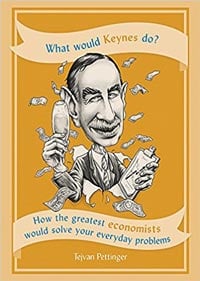
Should I park in an illegal parking space and risk a fine?
Key economist – Gary Becker
“I calculated the likelihood of getting a ticket, the size of the penalty, and the cost of putting the car in a lot. I decided it paid to take the risk and park on the street.”
Gary Becker, Nobel Economics lecture 1992.
The first observation of this question might be – what does it have to do with economics?
However, the seminal work – “Crime and Punishment” (1974) by Gary Becker was influential in the development of extending economics to a wider field of study. Becker’s application of economics to everyday situations like crime was, at the time, highly unorthodox. But Becker helped pioneer this widening scope of economics – we can see his contributions in later ‘Pop Economics’ books like “Freakonomics.” It all started with a Chicago Professor calculating he might as well risk a fine parking illegally.
I find this question quite interesting – from both an economic and philosophic perspective. My first instinct is to agree with Gary Becker. In similar situations, I have sometimes made a quick calculation and guessed it is in my interest to gamble, park illegally and hope I’m lucky. I don’t gamble on the lottery, but I will gamble – if I think the odds are stacked in my favour.
Quite a few times, I have parked in a prohibited position and not got a ticket.
What if everyone was a utility maximising economist?
However, what if everyone thought like an economist, and rather than follow the rules of society – we thought – what decision maximises my personal welfare using rational choice modelling?
If everyone was an economist, we might have blocked roads, and congestion because people are taking the mickey and always parking illegally.
Also, if everyone thought like an economist, the government may respond by employing more traffic wardens and giving bigger tickets. This is an unintended consequence of everyone thinking like a selfish economist.
Selfishness and social responsibility
When I make a decision to ignore parking regulations, there is also another calculation – is my decision selfish – and does it impose costs on other people in society? Perhaps there is a parking regulation for a very good reason – i.e. parked car would block eyesight of other drivers or contribute to congestion. Even if you could get away with it – we have a social contract to consider the welfare of society. In that case, utility maximisation should not be our guiding philosophy.
For example, we could park in an illegal spot and cause real congestion and inconvenience to other users. This I would not do.
However, suppose a firm owns a parking lot and it’s completely empty. In theory, you shouldn’t park there – because it says you can’t. But, the alternative is to drive 10 minutes away and pay in a municipal parking lot Rather than waste time – creating more congestion, you can park in the private lot, run into the shop and get what you need and hope you don’t get a ticket.
In that case, there is no external cost from parking illegally. The private firm doesn’t really care because on Sunday it doesn’t need the parking spots. Plus – you reduce congestion for other road users. You benefit because you save both time and money.
The problem with this approach is that – can we actually decide whether there are external costs from parking illegally. Once we justify breaking the rules it may be easier to keep going down that road and we get a breakdown of social responsibility.
Personally, I don’t agree with this slippery slope argument. Sometimes you just have to use your common sense.
Should we get mad if we get a ticket
Another point, is that how mad do you get if you’re unlucky and get a parking ticket?
I use a bit of behavioural economics and put say £100 in a fund for ‘unexpected fines.’ This is known as ‘mental accounting‘ If I don’t get any fines that year – I think – that’s great – I’ve saved £100. If I do get a parking ticket, I just mentally take it out of that fund and tell myself in the long-term it will average it out.
Also, as an economist, I say a £50 parking fine – goes to a good cause – the local council. The more parking fees they raise, the more they can spend on social care or reduce taxes. But, most people don’t think like an economist.
Don’t be too clever
One funny but true story. I was in London, and my friend wanted to buy something from a shop. There were no parking spots anywhere, so I parked on a single yellow line, while my friend ran into the shop. I waited by the car, ready to drive off – if a parking warden came. No one did come, my friend got his food, and we drove off. I thought I was clever to save a lot of hassle.
However, one week later, I got a very nice parking fine (something like £80) from Wandsworth Council saying I spent 10 minutes on a single yellow line. Not only that – they had a picture of me standing nonchalantly by my car, waiting for a traffic warden to appear.
So in that case, the clever economist got caught out by CCTV!
Related
Buy Book
- What would Keynes do? at Amazon
- What would Keynes do at Waterstones
- What would Keynes do at Blackwells

